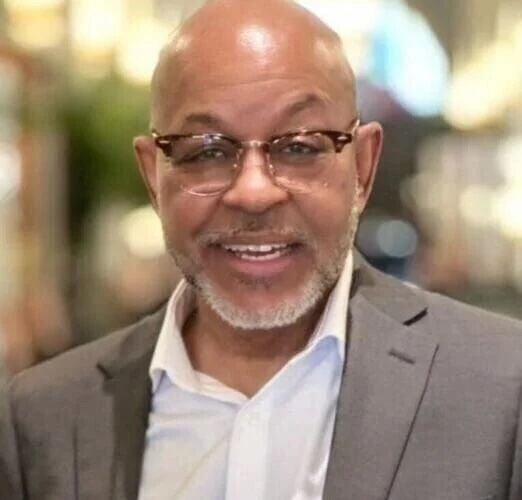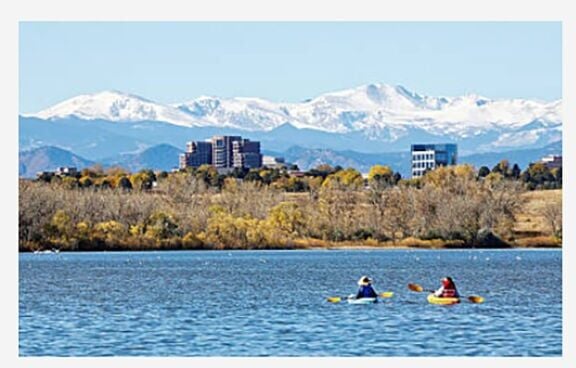Here’s what will make Aurora great | Michael A. Hancock
When most people think about the future, they think about Silicon Valley, D.C., or some other overhyped coastal city. But here’s a thought: what if the next great American city — the one that gets governance, innovation, and culture right — isn’t on a coast at all? What if it’s right here in Colorado? What if it’s Aurora?
It’s a bold claim, but remember, every great city started as an idea. The old power centers are failing. Washington is paralyzed by dysfunction. State governments — especially ours — seem more focused on imposing ideological conformity than solving problems. Meanwhile, the real action, the real opportunity, is shifting back to the local level. Cities are becoming the laboratories for real solutions, and Aurora has all the raw material to become not just a player, but a leader.
Let’s start with governance. Aurora is a home rule city. That’s not just a technicality — it’s a declaration of independence. It means Aurora has the authority to chart its own path without waiting for permission from the state. And frankly, with the way the state legislature is behaving these days — micromanaging local affairs, squeezing municipalities on everything from zoning to energy policy — that independence matters more than ever. Good governance isn’t flashy. It’s competent. It’s transparent. It’s responsive. Imagine a city where every resident can log on and see exactly how their tax dollars are being spent, where AI helps streamline city services, and where real-time dashboards show progress — or failure — on key initiatives. That’s not fantasy. That’s leadership.
But governance is just the beginning. To lead, Aurora must think bigger. This city sits at the crossroads of opportunity: anchored by Anschutz Medical Campus, home to Buckley Space Force Base, and fueled by one of the most diverse, hardworking populations in the country. We’re not a bedroom community anymore. We’re a hub — hubs need vision.
Here’s the play: Aurora becomes a magnet for technological innovation, not by copying San Francisco’s chaos, but by offering something better — stability, support, and space to grow. Tech companies are already fleeing the coasts, looking for cities that welcome them with smart regulation and a reliable workforce. Why shouldn’t Aurora be their landing zone?
Let’s build innovation districts near our key assets. Let’s launch a public-private seed fund to back startups right here. Let’s upgrade our infrastructure with next-gen broadband, smart mobility, and energy systems that work. We have the land. We have the people. What we need is the will. Of course, cities aren’t machines. They’re stories. And that’s where the arts come in. Aurora’s diversity isn’t some abstract statistic. It’s a cultural engine. Our city speaks more than 160 languages — that’s not a challenge; that’s an advantage. Let’s invest in it.
Aurora could — and should — be an arts, culture, and entertainment destination. A place where creativity isn’t just appreciated, it’s central to who we are. Think annual international festivals, street murals that tell our story, music and performance venues that draw crowds from across the region. Let’s stop waiting for Denver to define the cultural scene. Let’s own our voice.
And then there’s sports and wellness — the great unifiers. Aurora can become a training hub for amateur and professional talent, not just a city with youth leagues, but a city that invests in health, fitness, and competitive excellence. National tournaments, regional events, and sports development programs don’t just boost civic pride — they put us on the map.
But none of this happens in a vacuum. It takes collaboration — the kind that turns ambition into action. This is where Aurora can truly lead: by forging a model of civic partnership that other cities talk about but rarely achieve. We already have the players — the Aurora Economic Development Council, the Aurora Chamber of Commerce, the Anschultz Innovation Campus, Visit Aurora, Commercial and Residential Builders, the city government, and a host of other organizations and tech innovators. What’s needed now is alignment — everyone pulling in the same direction with a shared vision and the will to see it through. That’s rare. That’s powerful. And in Aurora, it’s entirely within reach.
It starts with a citywide visioning process — not the usual bureaucratic box-checking, but real engagement, real planning, and real accountability. Publish a 10-year roadmap. Track results. Celebrate wins — and learn from failures. Cities that are transparent about progress grow stronger. Cities that hide behind excuses stagnate.
The truth is, no one in Washington or Denver is coming to save us. And that’s good news — because Aurora doesn’t need saving. It needs bold leadership and a clear direction. Cities that lead do so because they decide to. They decide to govern well. To innovate smartly. To celebrate their culture. To work together.
Charles Krauthammer once observed that the future may belong not to nations, but to city-states — small enough to know their people, big enough to shape their destiny. Aurora can be that kind of city. The kind that doesn’t just respond to change — it drives it.
So, I’ll ask the question again — one that we should all ask, from City Hall to Havana Street, from Buckley to Colfax: Why not Aurora?
Michael A. Hancock is a retired high-tech business executive and a Coloradan since 1973. Originally from Texas, he is a musician, composer, software engineer and U.S. Air Force veteran whose wide-ranging interests — from science and religion to politics, the arts and philosophy — shape his perspective on culture, innovation and what it means to be a Coloradan.
Michael A. Hancock is a retired high-tech business executive and a Coloradan since 1973. Originally from Texas, he is a musician, composer, software engineer and U.S. Air Force veteran whose wide-ranging interests — from science and religion to politics, the arts and philosophy — shape his perspective on culture, innovation and what it means to be a Coloradan.






